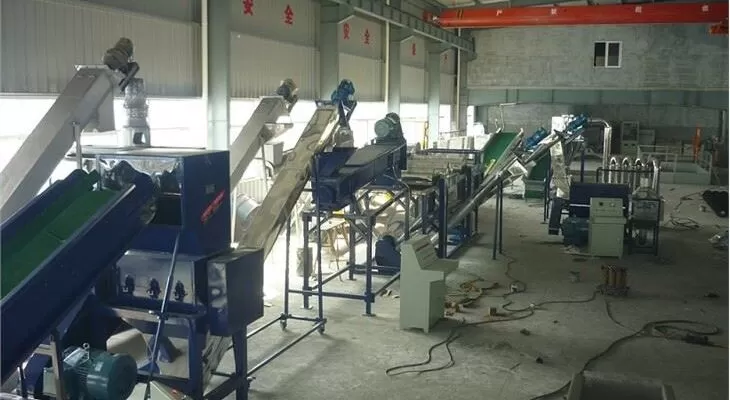Have you ever wondered how big the plastic recycling opportunity is in rapidly developing markets? If you’re looking for a business that’s not only profitable but also socially impactful, then you’ve probably considered the plastic recycling industry. With the growing global focus on environmental consciousness, plastic recycling has transformed from a niche environmental initiative into a market with massive commercial potential. But the question is, do you know how to capitalize on these opportunities in emerging markets?

In emerging markets, plastic recycling is not just key to solving environmental problems—it can also bring substantial economic returns. The demand in these markets is skyrocketing, especially in regions like Southeast Asia, Africa, and South America. Population growth, urbanization, and rising consumer goods demand are all contributing to increased plastic waste. With an efficient recycling system, this waste can be turned into valuable resources, creating new jobs and revenue streams along the way.
Why Are Emerging Markets Crucial for Plastic Recycling?
The plastic problem in emerging markets is particularly acute. Take Southeast Asia, for example—it’s one of the largest sources of plastic pollution globally. But where there’s a problem, there’s also a significant opportunity. Solving plastic pollution here doesn’t just improve local environmental quality; it also opens up new revenue channels for businesses.
In these markets, the plastic recycling industry is still in its infancy. That means there’s less competition and enormous market potential. For many investors and businesses, this is the perfect time to enter. We’ve seen similar trends in China, which gives us even more confidence that we can help these markets achieve the same success.
How Can You Seize the Plastic Recycling Opportunity in Emerging Markets?
First, understanding local demand and regulations is critical. Different countries and regions have varying needs and policies when it comes to plastic recycling. For example, some countries might be enforcing mandatory recycling laws, while others may be incentivizing the industry through economic measures. Before entering the market, thorough market research is essential.
Next, building local partnerships is key. In emerging markets, having local partners can help you better understand the market environment, establish supply chains, and gain government support. This not only accelerates your market entry but also reduces operational risks.
What Advantages Can Technological Innovation Bring in Emerging Markets?
Technology is a core driver of the plastic recycling industry. With advancements in recycling technologies, we can now recycle plastics more efficiently and at lower costs. For example, mechanical recycling and chemical recycling have both made significant strides in recent years. These technologies not only improve recycling efficiency but also give businesses a competitive edge in the market.
In emerging markets, technological innovation might offer even greater breakthroughs. Because infrastructure in these markets is still developing, the adoption of new technologies could yield higher returns. For instance, using mobile recycling units can effectively bring recycling capabilities to dispersed areas.
What Are Some Success Stories in Plastic Recycling?
When discussing success stories in plastic recycling, I must mention projects in Indonesia and Kenya. These projects not only solved local plastic pollution problems but also created thousands of jobs. In Indonesia, a plastic bottle recycling project, developed in partnership with local governments and NGOs, rapidly expanded nationwide, achieving both economic and environmental success.
In Kenya, a plastic recycling company established a network for collecting waste plastics, bringing sustained economic benefits to local communities while significantly reducing plastic pollution. These cases demonstrate that plastic recycling is not only feasible in emerging markets but also has enormous potential.
How Can You Overcome Challenges in Emerging Markets?
Of course, no market is without challenges. The plastic recycling industry in emerging markets faces issues such as insufficient infrastructure, lack of funding, and market opacity. However, these challenges are not insurmountable. With innovative business models, strong partnerships, and flexible strategies, companies can succeed in these markets.
For example, some companies have secured necessary funding by collaborating with international financial institutions. Others have promoted plastic recycling infrastructure by establishing public-private partnerships. These are effective strategies for overcoming the challenges in emerging markets.
What Does the Future Hold for Plastic Recycling in Emerging Markets?
Looking ahead, the potential for plastic recycling in emerging markets will only grow. As global attention on environmental issues continues to rise, and consumption levels increase in these markets, opportunities in the plastic recycling industry will multiply. We have every reason to believe that in the coming years, the plastic recycling industry will enter a golden era in emerging markets.
At the same time, technological advancements will continue to drive the industry’s development. More companies will enter the industry, driving innovation and collaboration, and pushing the plastic recycling sector to maturity.
Conclusion
The plastic recycling industry in emerging markets is full of opportunities and challenges. By seizing these opportunities and tackling the potential challenges, your business can achieve commercial success while contributing to the global environmental cause. It’s a win-win scenario.
Let’s take action and seize this historic opportunity together!
